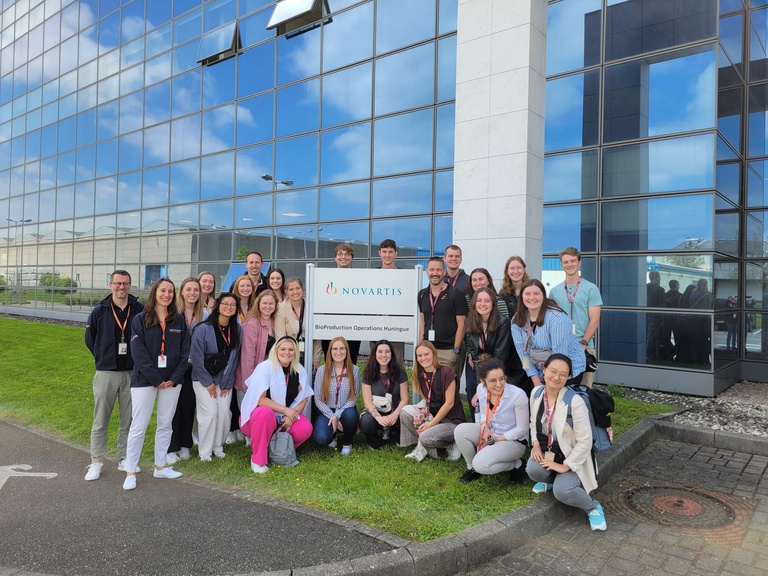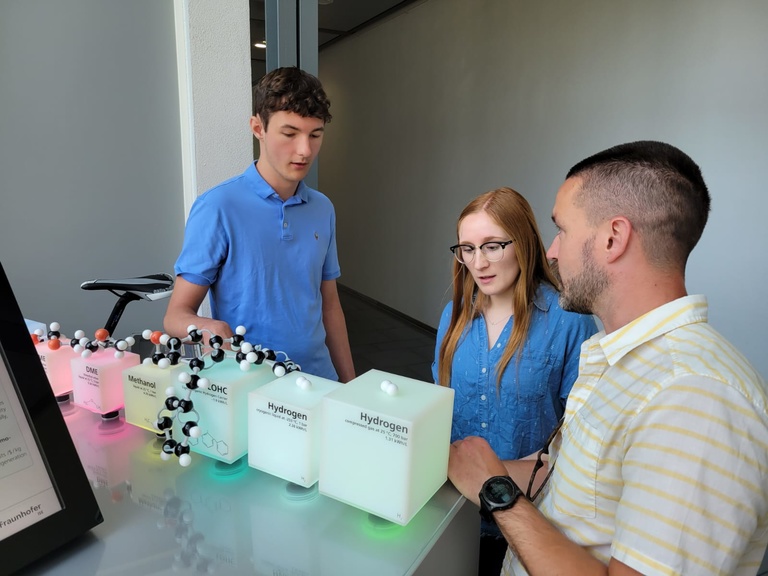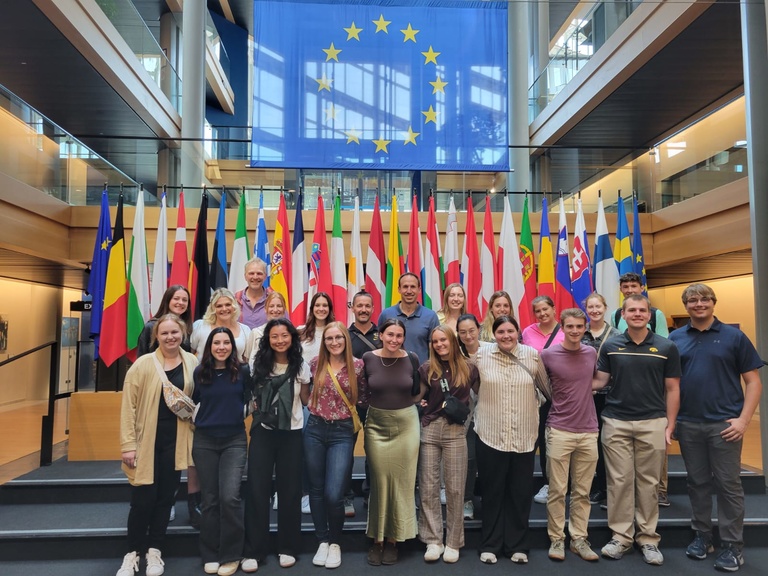By Charlotte Brookins
Iowa STEM students recently visited various locations in France, Switzerland, and Germany to experience the applications of sustainable chemistry on a global scale. The course was designed to follow industries and communities along the Rhine River valley, highlighting the differences in policy and approach to sustainability across countries and companies in this unique region of Europe. Moving through different locations along the Rhine, students were able to gain a deeper understanding of how history, geography, and national policies conspire to shape sustainability practices in the industry and cities.
The course, which consisted of twenty students, lasted two weeks and took them to places such as ETH Zurich, the Swiss equivalent of the National Science Foundation, major pharmaceutical manufacturer Novartis, Boehringer Ingelheim, and more. The trip was led by Department of Chemistry lecturer Adam Brummett and Director of the Office of Sustainability and the Environment Stratis Giannakouros.
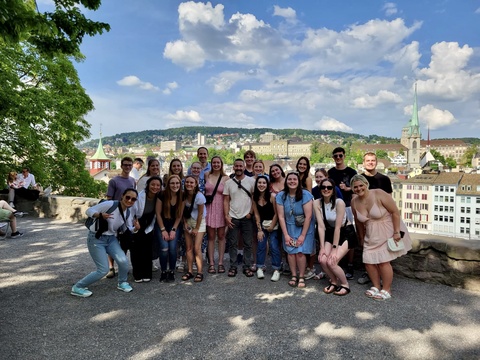
“The initial purpose was to open the door for STEM students to look at science from a more global perspective,” says Brummett. “So often we look at chemistry and science locally and nationally and don’t realize how much is being done in other places.”
The application process involved a submission of current grades, proof of passport information, and a statement of interest in the program. Accepted applicants were also given the opportunity to apply for financial aid to help with the costs of traveling.
So long as they had completed the Principles of Chemistry II course, students of any major were invited. The final lineup included people from multiple areas of Iowa STEM, including chemistry, environmental science, biochemistry, pharmacy, chemical engineering, and biology.
While on the trip, the students explored urban Europe’s efforts to increase biodiversity, emphasize conservation, adapt to climate change, and mitigate the impact of urbanization.
Students expressed gratitude and excitement for the journey, especially about personal experiences and preparation for future careers.
“It was cool to see chemistry humanized by the people working at the pharmaceutical companies we visited,” says Kodi Dailey, a fourth-year student studying chemistry, English, and creative writing with a certificate in sustainability. “This was the first time in my entire life that I felt like maybe I could work in a lab someday—prior to this visit, I always thought I didn't have what it takes.”
Third-year chemistry major Jenna Ringwald expressed similar enthusiasm.
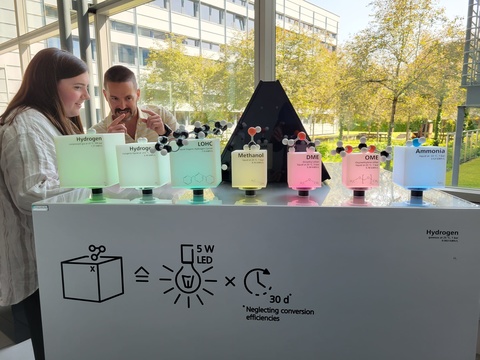
“My favorite part was getting to connect science to policy,” she explains. “I get to learn about chemistry all of the time, but I've never considered how policymakers take research and data and transform it into things that are more meaningful to citizens.”
She goes on to say, “It was also fascinating to explore how sustainability is a topic that is connected across science and culture. There are so many innovations that we can implement, but it does require a change in systems, so people have to be willing to commit.”
In addition to experiential learning, the group explored different cultures and gained new experiences while learning in an environment much different than Iowa. To Brummett, it was this experience that was the most important part of the trip.
“It highlights the importance of experiential learning in environments that are outside of the norm.”
Several of the students involved highlighted their trip on the CLAS Instagram account. You can watch their stories and relive some of their experiences through social media.
